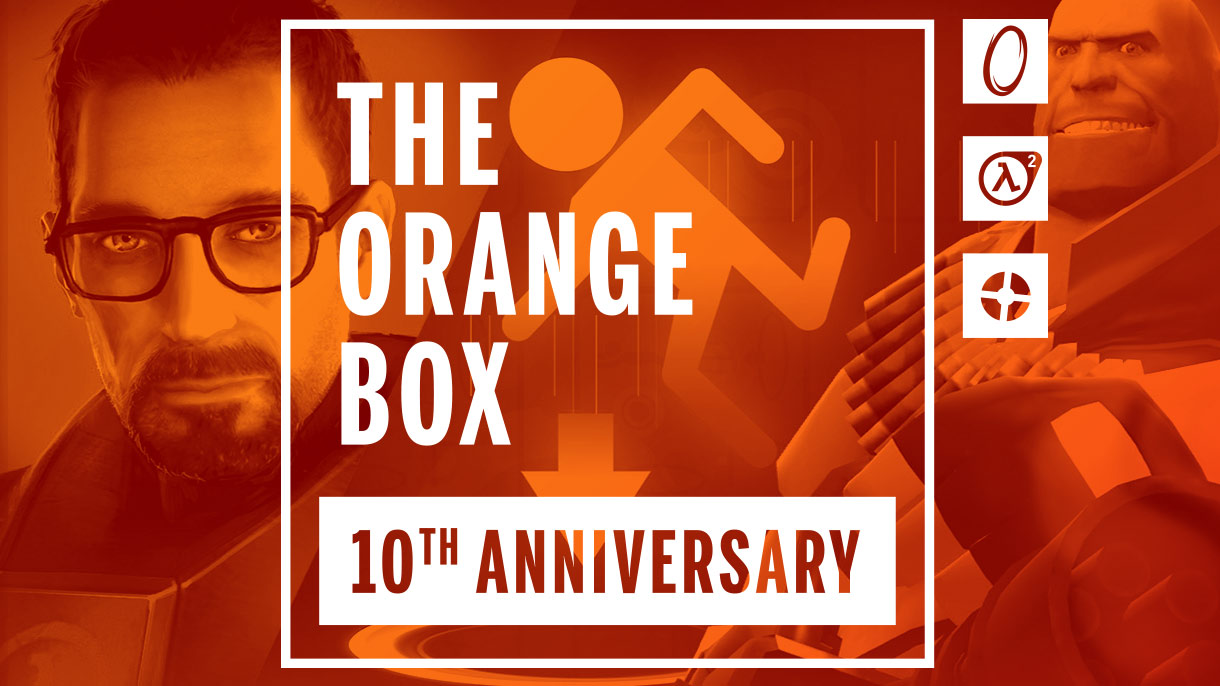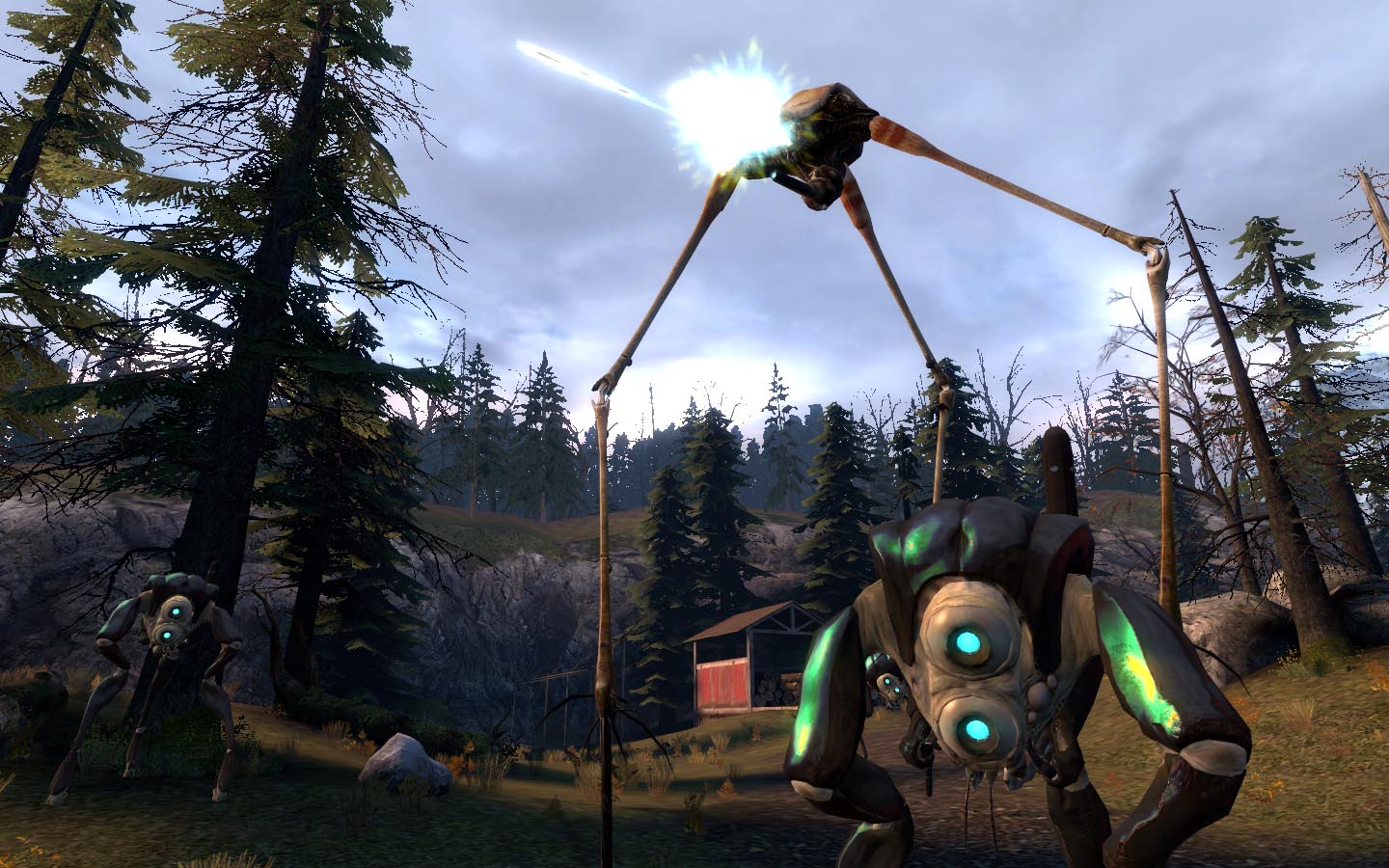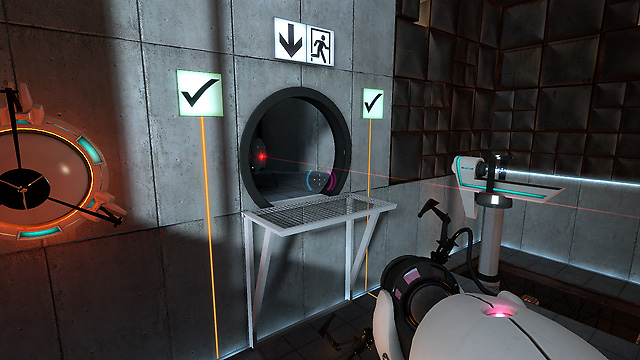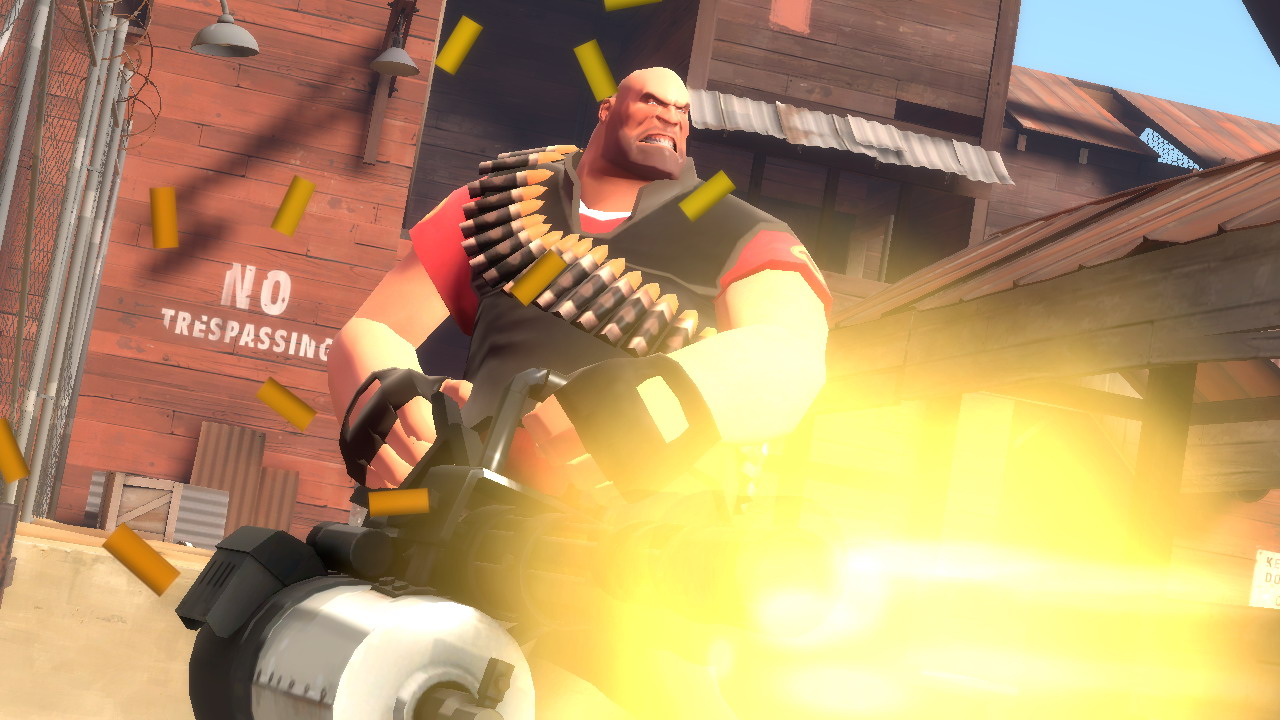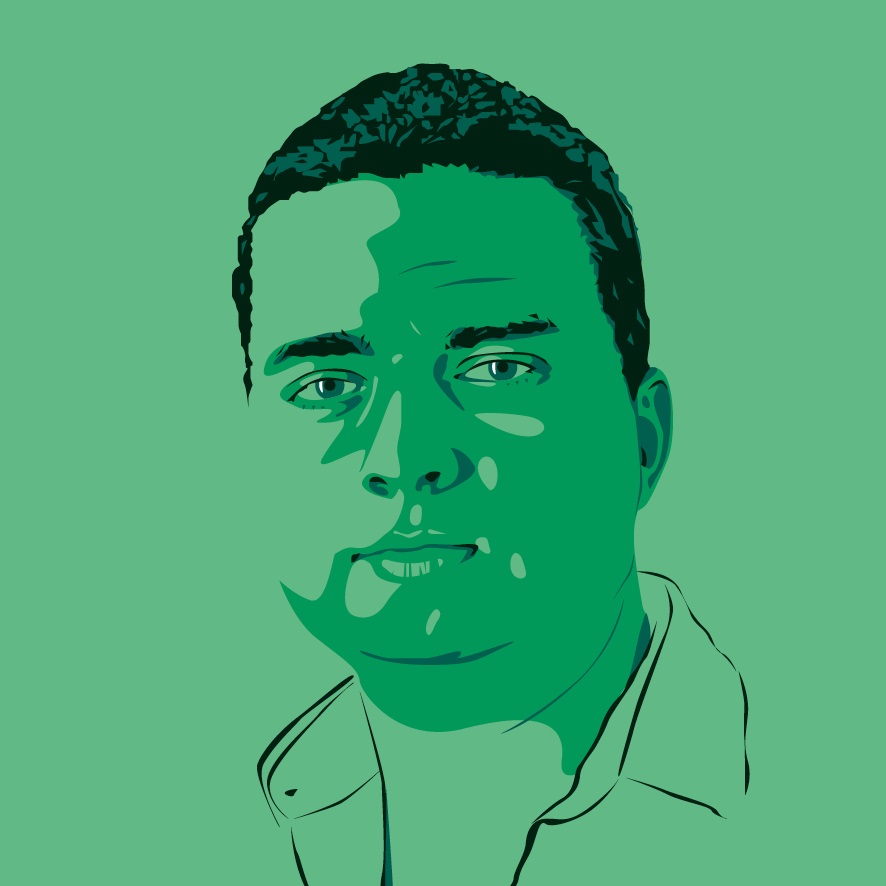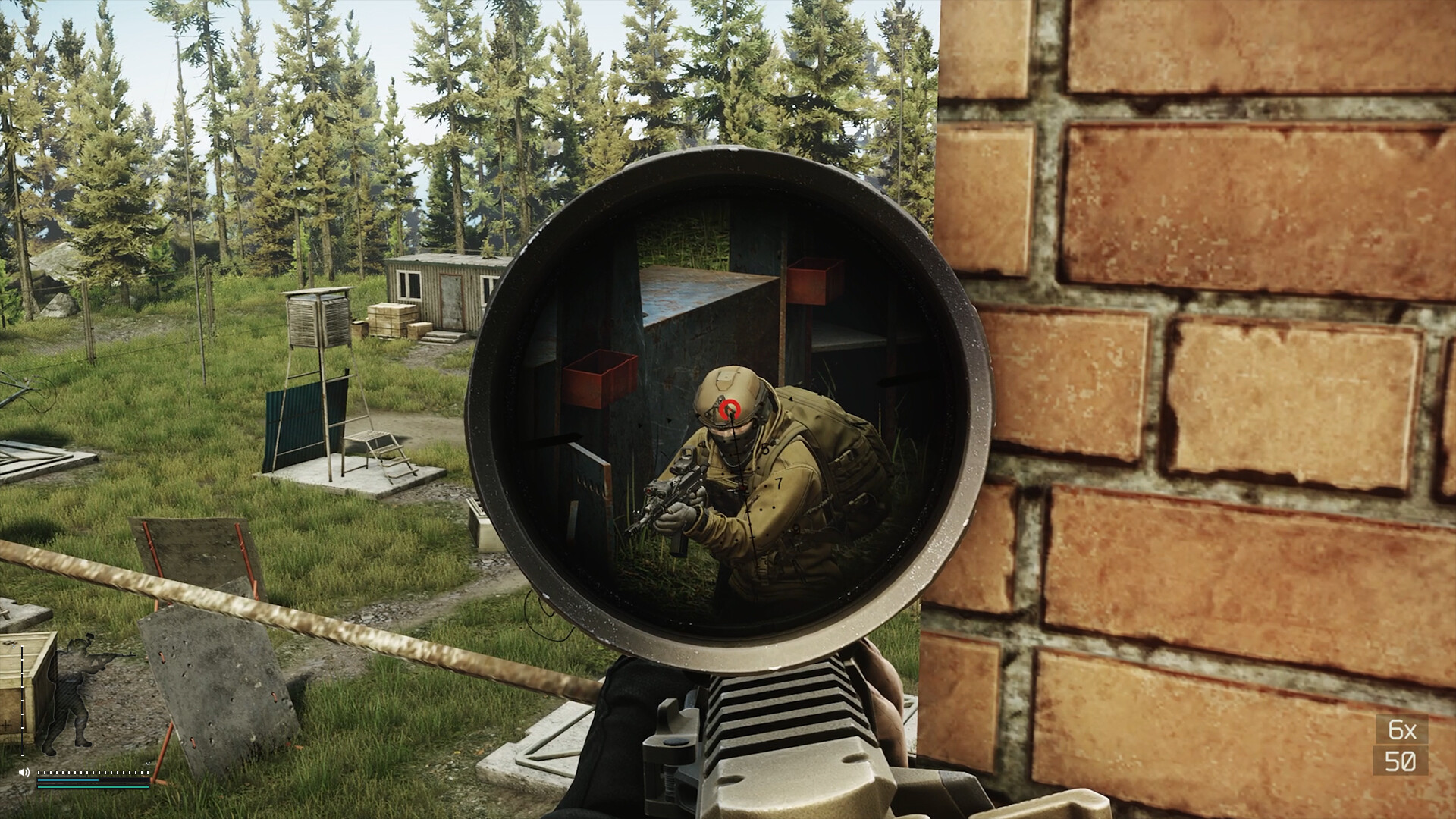Valve reflects on The Orange Box, ten years later
Robin Walker discusses the impact of Portal, Team Fortress 2 and more.
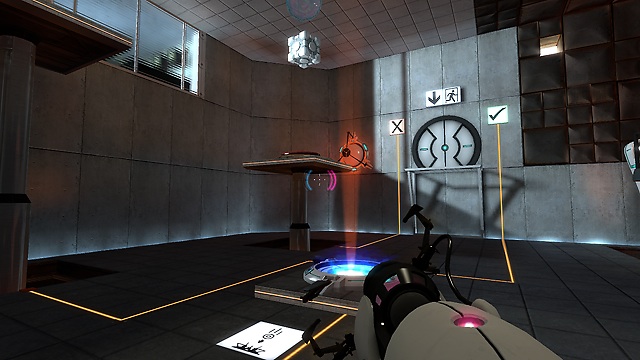
Our other anniversary pieces:
- The Orange Box review from 2007
- Remembering HL2: Episode 2
- How TF2 changed FPSes
- Portal and the cake meme
The Orange Box launched ten years ago. It was undoubtedly the greatest bundle of games ever, with the simultaneous launch of Portal, Team Fortress 2 and Half-Life 2: Episode Two, alongside the existing Half-Life 2 and Half-Life 2: Episode One. The former three were instantly significant in the landscape of PC gaming: Portal was an influential puzzle game that many cited as the surprise highlight of the set, while Team Fortress 2 arrived as a fully-formed multiplayer phenomenon that would constantly evolve across the next decade. Episode Two, of course, was the last time we experienced a new chapter of arguably the greatest singleplayer FPS series of all time.
It was a massive moment: imagine that many amazing games dropping at once now, from the same developer. It just wouldn't happen. Here, Valve's Robin Walker reflects on the factors that led to The Orange Box's release, and offers some behind-the-scenes insights on both Portal and Team Fortress 2.
PC Gamer: What did the release of The Orange Box mean for Valve at that time, and what does it represent as part of Steam's history?
Robin Walker: The Orange Box was a huge step for us internally because it was the first time we’d ever managed to complete more than a single product at a time. In some ways, the Orange Box was a company level 'hack' where we made three separate products that all consider themselves the same product for shipping purposes, which meant that people could rationally prioritize their work across all three of them. If you were on Portal, and everything was going well, but TF2 was struggling, it made sense for you to jump over and help TF2 out because all three games needed to ship together.
The Orange Box was also a great product to really highlight why the retail channel was reducing game developer’s options. We found with Episode One that retail really didn’t understand or like a premium quality $20 title—they stood to make less money per box, and they had a limited amount of shelf space in their stores. The Orange Box avoided this by combining multiple quality products into a single box that was worth that full amount, but in doing so it created other problems. Retail had never seen a new, high quality box containing more than one title. Historically, a box that contained multiple titles was a bundle of old or low quality titles.
So in terms of Steam’s history, to us the Orange Box represents the era in which distribution channels placed a huge amount of friction on what kinds of games were made, how big they should be, and how much they were sold for. These weren’t things that retailers should be blamed for, they were simply the side effects of operating in physical space. It’s great to be able to look around and see such an enormously wide spectrum of games being made today, many of which wouldn’t have had much of a chance to find their audience in that physical distribution world.
Were you surprised by the response to Portal, in that a lot of people considered it to be the highlight of The Orange Box at the time?
Keep up to date with the most important stories and the best deals, as picked by the PC Gamer team.
We didn’t really know what to hope for with Portal. We’d put it in front of enough play testers to be confident that players would have fun with it, but Portal didn’t fit any existing model of a successful game for us to know how it was going to really turn out. There wasn’t much of a history of first person puzzle games, let alone ones that combined a new gameplay mechanic with comedy. The Orange Box really solved Portal’s biggest challenge, which was to explain itself to players. By putting it in the Orange Box, we didn’t have to do the heavy lifting of explaining to people why they should buy this thing that was unlike anything they’d played before—instead, we could lure them in with Episode Two & TF2, and surprise them with the game they had the least expectations for.
Portal became incredibly influential to the indie games scene—its length, storytelling and environmental design are felt in a lot of today's games. Can you recall that process of the Narbacular Drop team joining Valve, and the key decisions that eventually made that game what it is?
By the time we saw Narbacular Drop at the Digipen student day, we’d already hired multiple groups of inexperienced developers who had built interesting things. When we hire those kinds of teams, we’re fundamentally more interested in the people than the thing they’ve built, and in our discussions with them, the Portal team seemed like a group of people with a huge amount of potential. We paired them up with some experienced developers at Valve, and let the team loose.
In any game's development, there are too many decisions to count, and many of them will ruin the game if made incorrectly. One decision that ended up being very important was the one behind GladOS. We had been working on Portal for about a year, and at that point we had 14 levels of the game in a state where they were being regularly playtested. There was no GladOS, the player just moved from puzzle to puzzle without any sense of progression or reward beyond the increasing complexity of the puzzles. The playtest response we kept seeing could be summed up as "This is really fun! When does the game start?". This was both great and terrifying. Players were having fun, but they seemed to consider everything they played as just training leading up to something else. Considering the entire game was really just a process of learning about the core gameplay mechanic, this scared us a lot, making us worry that we’d have to create a whole other section of the game afterwards.
But first, we asked ourselves what it was that was causing players to consider everything as training. After much discussion, we settled on the idea that it was the lack of threat or pressure. Nothing in the game pushed back on the player. There was no real failure, no cost to mistakes, nothing overall to fear, no larger goal to strive for, and hence no real reason to advance. We talked about various solutions, and in the end decided that introducing an antagonist made the most sense. The antagonist could start as a narrative tool for introduction & reward, and over time become the thing that pushed back on the player, eventually giving them the core goal of the game—"I want to learn all this because I need to be able to defeat X". We had little in the way of art production on the team, so it being a character that largely spoke to you via voice over was a straightforward production solution.
In the end, there are many important decisions after this that were critical to GladOS working as well as she did, such as her entire personality. But her genesis begins with a straightforward process of us trying to solve the core gameplay problem in Portal. Even today, it’s always fascinating to us that players seem to start Portal talking about the gameplay, but after they’re done, all they talk about is GladOS.
You've kept updating and transforming Team Fortress 2 over the years, and few competitive games have that kind of lifespan. What's been the philosophy behind that? How have you kept reinventing the game while still making it recognisably TF2?
The philosophy is pretty simple—listen to your players, pay attention to what they're doing, ship your work, and iterate as much as possible. But TF2's a strange thing. In some ways, it seems so different to how it launched in 2007, but at the same time, it still feels utterly familiar. There are still Snipers on the battlements in 2Fort having a fine old time paying no attention to what's going on with their flag in the basement. There's a much wider set of potential threats to deal with than they faced back in 2007, but they now have many more choices in exactly how they want to face them. And no matter what they decide, they can ensure they look different to all the other Snipers in the game.
So TF2's core gameplay seems to be fairly resilient in the face of all the horrible things we've done to it, and I think that's largely due to how we've approached our role in the process. We've always felt that our job was to support players in whatever they're trying to do. As a result, it's the players who've decided how TF2 should be played throughout the last decade. We've added all kinds of elements to the game, from both our and the community's minds, and the players have been the ones to digest and choose the way those elements ended up incorporated into the whole, even if it meant outright rejection in some cases.
You provided audio commentary for The Orange Box at the time, which was a really nice opportunity to let players get granular with the various games' creative processes, having previously tested it in Lost Coast. Can you recall the process of doing that? What was it like to examine your work through that lens as a developer?
We approached commentary as a tool to explain our craft. In our experiences listening to commentaries of other creative works, it was the nuts & bolts of how they actually did the work that interested us the most. Throughout our years of developing games, we constantly found that problems we thought were going to be straightforward to solve turned out to be nasty, thorny issues involving complex tradeoffs between design and technology. Often, that complexity was hidden entirely by the solution. So we thought it might be interesting to players if we could lift the rock and show them everything that’s going on underneath all that apparent simplicity. We’re game developers, so hopefully players will forgive us for thinking that game development is a fun thing to talk about.
Also, that commentary and accompanying analysis was all written before the product launched, which means we didn’t have the chance to examine our work through the context of how it was received, let alone how it would fit into the gaming landscape 10 years later. Would Portal be something people would like? Or would it be some weird puzzle game Valve made that no-one wanted any more of? Without that perspective, we found it hard to talk about anything other than what we were confident in—what we did, and why we did it.
